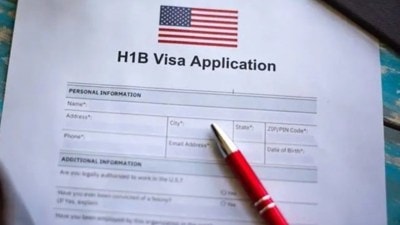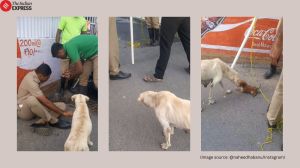Ritu Sarin is Executive Editor (News and Investigations) at The Indian Express group. Her areas of specialisation include internal security, money laundering and corruption. Sarin is one of India’s most renowned reporters and has a career in journalism of over four decades. She is a member of the International Consortium of Investigative Journalists (ICIJ) since 1999 and since early 2023, a member of its Board of Directors. She has also been a founder member of the ICIJ Network Committee (INC). She has, to begin with, alone, and later led teams which have worked on ICIJ’s Offshore Leaks, Swiss Leaks, the Pulitzer Prize winning Panama Papers, Paradise Papers, Implant Files, Fincen Files, Pandora Papers, the Uber Files and Deforestation Inc. She has conducted investigative journalism workshops and addressed investigative journalism conferences with a specialisation on collaborative journalism in several countries. ... Read More
CII to put a "cheque" on secret poll funding
NEW DELHI, Dec 11: In an effort to bring transparency into the funding of the 1998 general elections, the Confederation of Indian Industry ...

NEW DELHI, Dec 11: In an effort to bring transparency into the funding of the 1998 general elections, the Confederation of Indian Industry (CII) will shortly be asking its 3,500 member industries to make contributions to political parties only by cheque.
“We want to end surreptitious financing of elections by industry and bring the whole issue on the table,” Tarun Das, CII president told The Indian Express. He said the CII had already discussed the subject with Chief Election Commissioner M S Gill during a meeting held last week. The CII, he informed, will now discuss the subject at its December 19 National Council meeting in New Delhi and proceed to write all its members to pay parties by cheque and show the same in their annual reports.
He clarified that though the payments will not be exempt from income tax, the donor companies may well earn the goodwill of their shareholders by declaring them. “The contributions to political parties will come from the profits of these companies. As far as the shareholders are concerned, they will see the payments as being made in the larger interest of the country.” Das said a beginning towards transparent funding was made in the 1996 elections when some parties like the Congress and the BJP had written formal letters to captains of industry asking for contributions. This time, though no party had sent out the letters yet, they expected the formal requests would eventually come.
He said he knew of at least two companies – Bajaj Auto and Mukand Industries – who had made payments of Rs 50 lakh to the Congress and the BJP respectively for the 1996 elections and accounted for it in their books. According to the CII president, it was the process of deregulation and de-licencing, as well as attempts by the United Front Government in putting the corruption issue into focus, that had facilitated the climate of change in election funding.
“Though responses from industry has been largely negative because elections have come too soon,” Das explained, “we are expecting a breakthrough and hope that a majority of payments will be made by cheque.” One shift that was envisaged, Das said, was that several companies might opt for contributing to regional parties rather than of the national ones. “The industry has realised that because of frequent changes in the top, the Government is no longer the major player for seeking licences . Industry will thus be hedging its bets and paying regional as well as national players judiciously.”



- 01
- 02
- 03
- 04
- 05





























